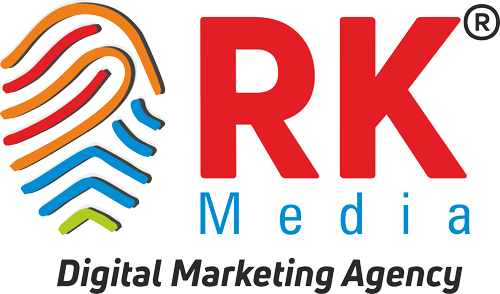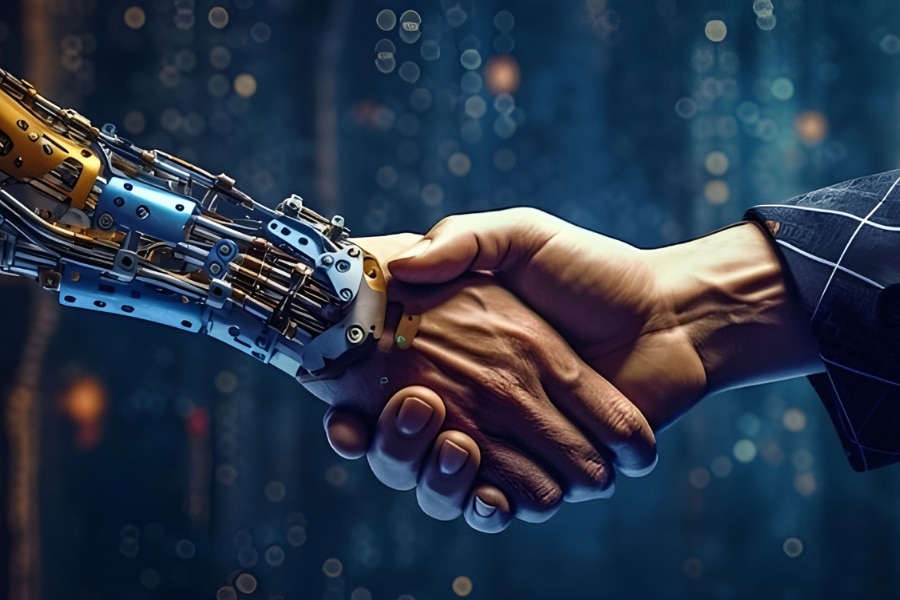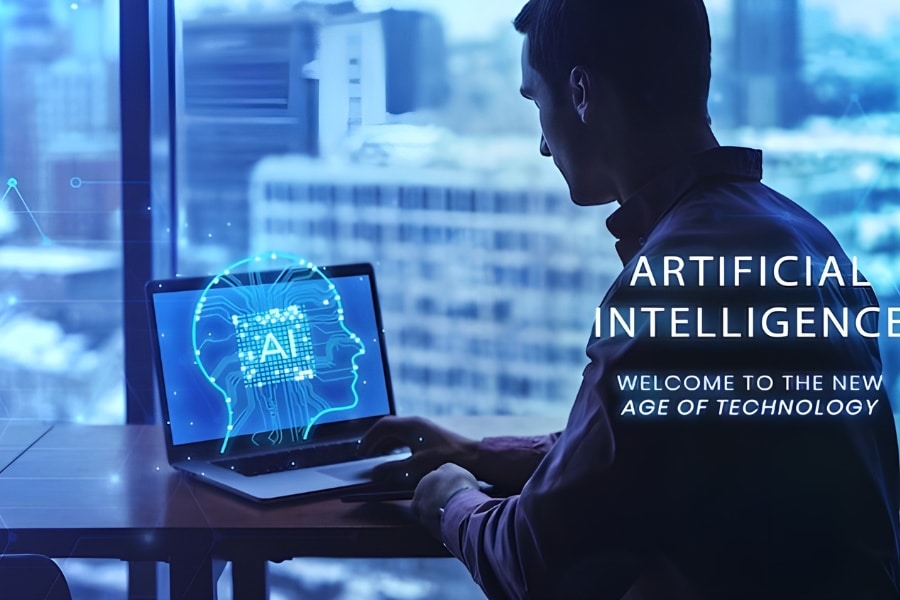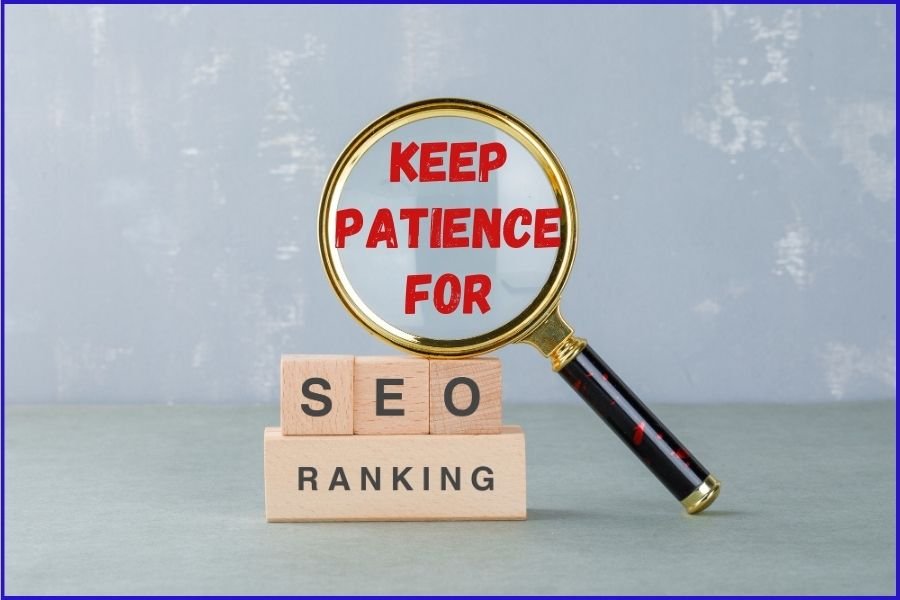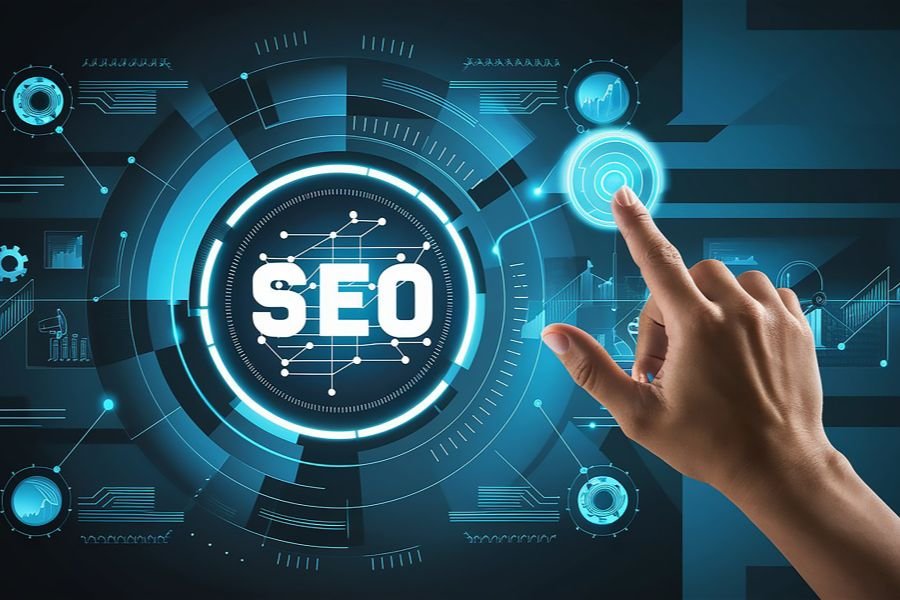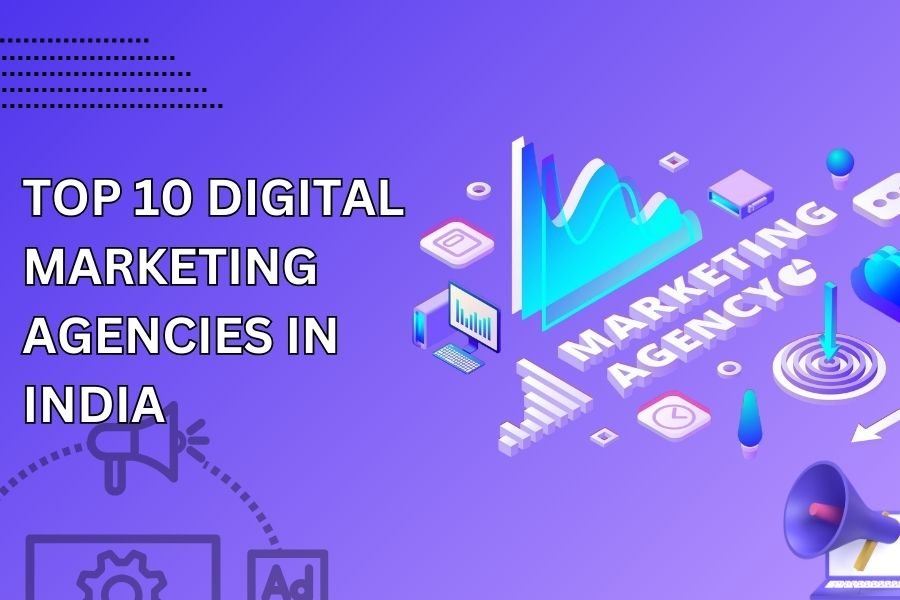AI in Marketing: Friend, Foe, or Future?
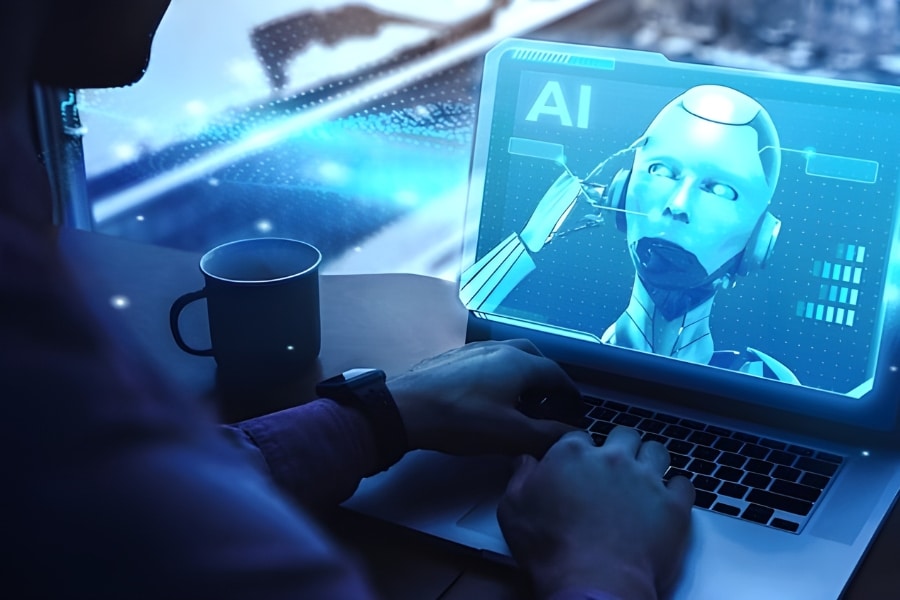
Imagine a world where data-driven insights whisper secrets of customer behavior, personalized experiences blossom at scale, and tedious tasks vanish, freeing you to focus on strategic brilliance. This is the world promised by Artificial Intelligence (AI) in marketing, a landscape undergoing a seismic shift. But with this new technology comes a crucial question: is AI a friend or foe to marketers? Will robots snatch our jobs, or can we forge a collaborative partnership to achieve unprecedented results?
A Captivating Story Begins
Remember the days when Netflix offered the same generic recommendations for everyone? AI has revolutionized that, analyzing viewing habits with uncanny accuracy to suggest shows that leave you glued to the screen. This is just one example of how AI in marketing, and it’s a story with both thrilling potential and sobering challenges.
The Ally’s Arsenal: Unleashing AI’s Power
- Decision-Making on Steroids: Forget sifting through mountains of data. AI does the heavy lifting, uncovering hidden trends and correlations that inform smarter campaign strategies. Picture it: AI in Marketing deciphers the buying habits of millions, revealing the perfect product placement for your ad. That’s the power of AI-driven insights.
- Personalization at its Finest: One-size-fits-all is dead. AI tailors content, ads, and recommendations to individual preferences, fostering deeper connections with customers. Imagine a website that adapts to your browsing history, suggesting products you’ll adore. That’s the magic of AI personalization.
- Automating the Mundane: Let’s face it, marketing involves its fair share of repetitive tasks. Scheduling social media posts, and generating reports – AI handles these with ease, freeing your time for strategic thinking and creative endeavors. Think of it as having a tireless assistant who takes care of the busy work, allowing you to focus on the big picture.
- Predicting the Future, Shaping the Present: Fortune tellers are out, AI-powered prediction is in. By analyzing past data and customer behavior, AI in Marketing forecasts future trends and actions with remarkable accuracy. This lets you anticipate customer needs, tailor campaigns accordingly, and stay ahead of the curve. Imagine knowing what products customers will buy next – that’s the power of AI prediction.
The Foe’s Shadow: Addressing Concerns
- Job Displacement: A Valid Fear: Automation anxiety is real. Some fear the inclusion of AI in Marketing will affect their jobs. While AI may handle specific tasks, its limitations are clear. The human touch of creativity, strategic thinking, and emotional intelligence remains irreplaceable. AI is here to augment, not replace, our skills.
- Losing the Human Touch: Imagine sterile, AI-driven marketing that lacks empathy and emotional connection. This is a potential pitfall to avoid. Overreliance on algorithms can lead to generic campaigns that fail to resonate. Remember, the human element is crucial for building genuine connections with customers.
- Ethical Considerations: Walking the Tightrope: AI algorithms can perpetuate biases present in the data they are trained on, leading to discriminatory outcomes. Data privacy remains a critical issue, with concerns about how AI collects, stores, and uses consumer data. Responsible AI in Marketing implementation demands transparency, fairness, and ethical practices.
- Over-reliance on AI: A Dangerous Dance: Don’t treat AI in Marketing as a magic bullet. Neglecting human creativity and strategic thinking can lead to unimaginative campaigns. Remember, the true power lies in synergy: human intuition guiding the vision, empowered by AI-driven insights.
Finding the Middle Ground: Building a Symbiotic Partnership
AI in Marketing is neither friend nor foe, but a powerful tool. The key lies in striking a balance, leveraging its capabilities while maintaining human oversight and creativity. Here’s how:
- Focus on Strategic Tasks: Let AI automate the mundane, freeing you for strategic thinking and creative campaigns.
- Maintain Human Oversight: AI algorithms have limitations. Humans ensure ethical usage, monitor for biases, and inject authenticity and emotional intelligence.
- Embrace Ethical Practices: Transparency, data privacy, and fairness are crucial. Be clear about how you use AI in Marketing and prioritize responsible data collection and utilization.
- See AI as a Collaborator: View AI as a partner, not a replacement. Leverage its analytical power to inform your decisions while retaining your human ingenuity and empathy.
Case Studies in Action: Witnessing the Synergy
- Starbucks: The coffee giant uses AI in Marketing to personalize its mobile app experience, recommending drinks based on past purchases and preferences. However, baristas still curate the in-store experience, fostering human connection.
- Sephora: Sephora uses AI-powered virtual consultations to help customers find the perfect foundation shade, but their beauty advisors are still available for personalized recommendations and product knowledge. This combination empowers customers with self-service options while maintaining the human touch.
- Adidas: The sportswear giant utilizes AI in Marketing to personalize its online shopping experience, suggesting products based on past purchases and browsing behavior. However, they also host in-store events with athletes and influencers, creating a sense of community and human connection that AI alone cannot replicate.
- Coca-Cola: Coca-Cola leverages AI to analyze social media sentiment and identify trending topics. This allows them to create timely and relevant campaigns, like their personalized “Share a Coke” campaign. However, the brand understands the importance of human creativity and partners with artists and designers to create its iconic visual identity.
These examples showcase how AI in Marketing can coexist harmoniously with human involvement. By focusing on leveraging AI’s analytical strengths and complementing them with human creativity and emotional intelligence, brands can achieve remarkable results.
The Future Beckons: A Symbiotic Landscape
As AI continues to evolve, its role in marketing will undoubtedly become even more prominent. However, it’s crucial to remember that AI is not a replacement for humans; it’s a powerful tool that can augment our capabilities. The future of ai in marketing lies in a synergistic partnership: Humans, with their creativity, strategic thinking, and emotional intelligence, guide the vision and direction, while AI empowers them with data-driven insights, automation, and predictive analysis.
Imagine this: AI analyzes vast amounts of customer data, identifying key trends and predicting future behaviors. Humans then step in, weaving these insights into compelling narratives, crafting emotionally resonant content, and fostering genuine connections. This synergy between human and machine intelligence is the true key to unlocking unparalleled marketing success.
Conclusion: Embracing the Future of Marketing with AI
In this exploration of AI’s role in marketing, we’ve delved into its immense potential to augment our capabilities and transform the way we connect with customers. From uncovering hidden data insights to automating mundane tasks, AI unveils a treasure trove of opportunities for marketers. However, it’s not without its challenges – potential job displacement, the loss of the human touch, and ethical concerns demand responsible implementation.
Remember, AI is neither a friend nor a foe, but a transformative tool waiting to be wielded wisely. The key lies in striking a harmonious balance, leveraging AI’s analytical superpowers while safeguarding the irreplaceable human elements of creativity, empathy, and strategic thinking.
Here are the key takeaways to guide your journey:
- AI empowers smarter decision-making: by analyzing vast data sets, AI reveals hidden trends and insights for optimized campaigns.
- Personalization reigns supreme: AI tailors content, ads, and recommendations to individual preferences, fostering deeper customer connections.
- Repetitive tasks get automated: AI frees up valuable time for marketers to focus on strategic thinking and unleash their creative genius.
- Predictive analysis is your secret weapon: AI forecasts future trends and customer behavior, allowing you to stay ahead of the curve.
Yet, alongside these benefits, we must address the challenges:
- Job displacement is a valid concern: While AI automates tasks, it’s crucial to upskill and adapt to thrive in the evolving landscape.
- Maintain the human touch: Inject empathy and emotional intelligence into your campaigns to avoid sterile, AI-driven marketing.
- Prioritize ethical practices: Transparency, data privacy, and fairness are paramount for responsible implementation of AI in Marketing.
- Don’t over rely on AI: Remember, it’s a tool, not a replacement. Maintain human oversight and inject your unique creativity.
The future of marketing is undoubtedly intertwined with AI, but the story doesn’t end there. Imagine this: AI analyzes vast amounts of customer data, identifies key trends, and predicts future behaviors. Humans then step in, weaving these insights into compelling narratives, crafting emotionally resonant content, and fostering genuine connections. This synergy between human and machine intelligence is the true key to unlocking unparalleled marketing success.
Embrace AI responsibly, leverage its power strategically, and never forget the human touch. This is the recipe for a future where marketing thrives, exceeding expectations and forging meaningful connections with your audience. So, step into the future with confidence, explore the potential of AI, and unlock the next chapter of your marketing journey. Remember, the future is bright, and it’s ours to shape together.
Additional Tips for Marketers Embracing AI:
- Identify areas where AI can be most beneficial within your specific marketing niche.
- Choose reliable AI tools and platforms based on your specific needs and budget.
- Build internal expertise or partner with consultants to ensure successful AI integration.
- Stay informed about the latest advancements in AI and its implications for marketing.
- Continuously update your skills and knowledge to thrive in the evolving marketing landscape.
By following these steps, you can become a leader in the new era of AI-powered marketing, shaping the future of customer engagement and achieving remarkable results.
Remember, the future is bright and ours to shape together.
FAQs about AI in Marketing
Will AI take over my marketing job?
AI is unlikely to completely replace marketing jobs. While it can automate repetitive tasks like data analysis and report generation, it lacks the human touch needed for strategic thinking, creativity, and building relationships with customers. Instead, AI should be seen as a tool to augment your skills and free up your time for higher-level strategic work.
How can I use AI to personalize my marketing campaigns?
AI can analyze customer data to understand individual preferences and behaviors. This allows you to personalize your content, ads, and recommendations, creating a more relevant and engaging experience for each customer. For example, you could use AI to send targeted email campaigns based on past purchases or website browsing behavior.
What are the ethical considerations of using AI in marketing?
It's crucial to use AI responsibly and ethically. This includes being transparent about how you use AI, ensuring data privacy, and avoiding biased algorithms. Remember, AI should be used to enhance customer experiences, not exploit them.
How can I get started with using AI in my marketing?
There are many different AI tools and platforms available for marketers, ranging from simple automation tools to more complex analytics platforms. Start by identifying a specific area where you think AI could be helpful, such as lead generation or social media marketing. Then, research different tools and choose one that fits your budget and needs.
What are the biggest challenges to using AI in marketing?
Some of the biggest challenges include:
- Cost: Implementing and maintaining AI can be expensive, especially for smaller businesses.
- Data availability: AI requires large amounts of data to be effective, which may not be available to all businesses.
- Expertise: Using AI effectively often requires specialized skills and knowledge.
However, these challenges are being addressed as AI technology continues to develop and become more accessible.
Image Reference: Freepik
Disclaimer: All trademarks, logos, and brand names are the property of their respective owners. All company, product, and service names used in this website are for identification purposes only. Use of these names, trademarks, and brands does not imply endorsement.
